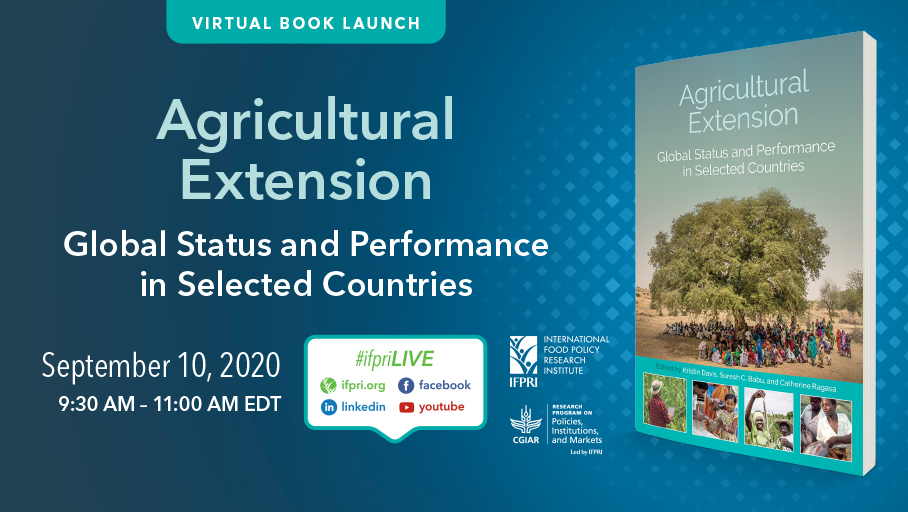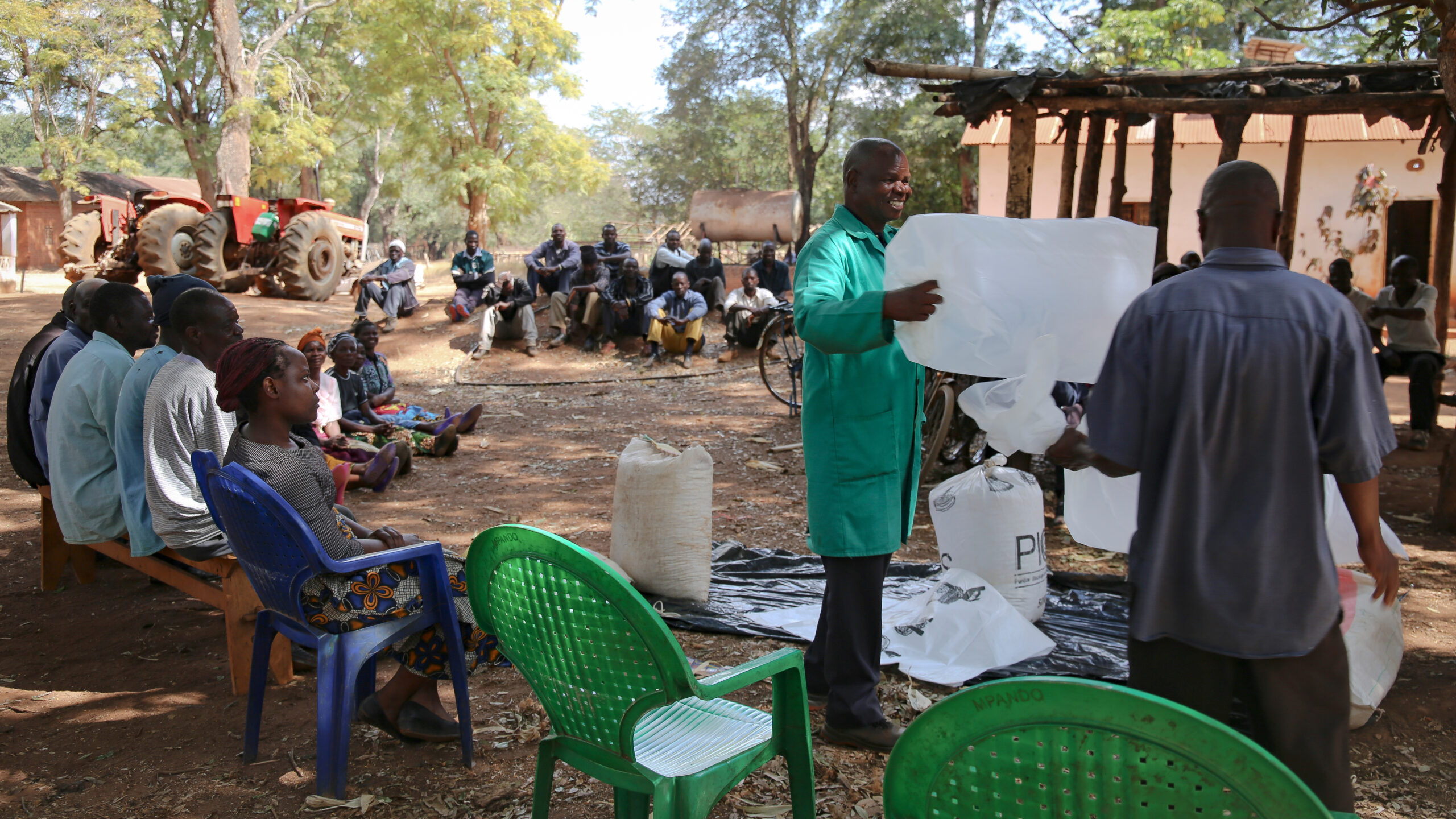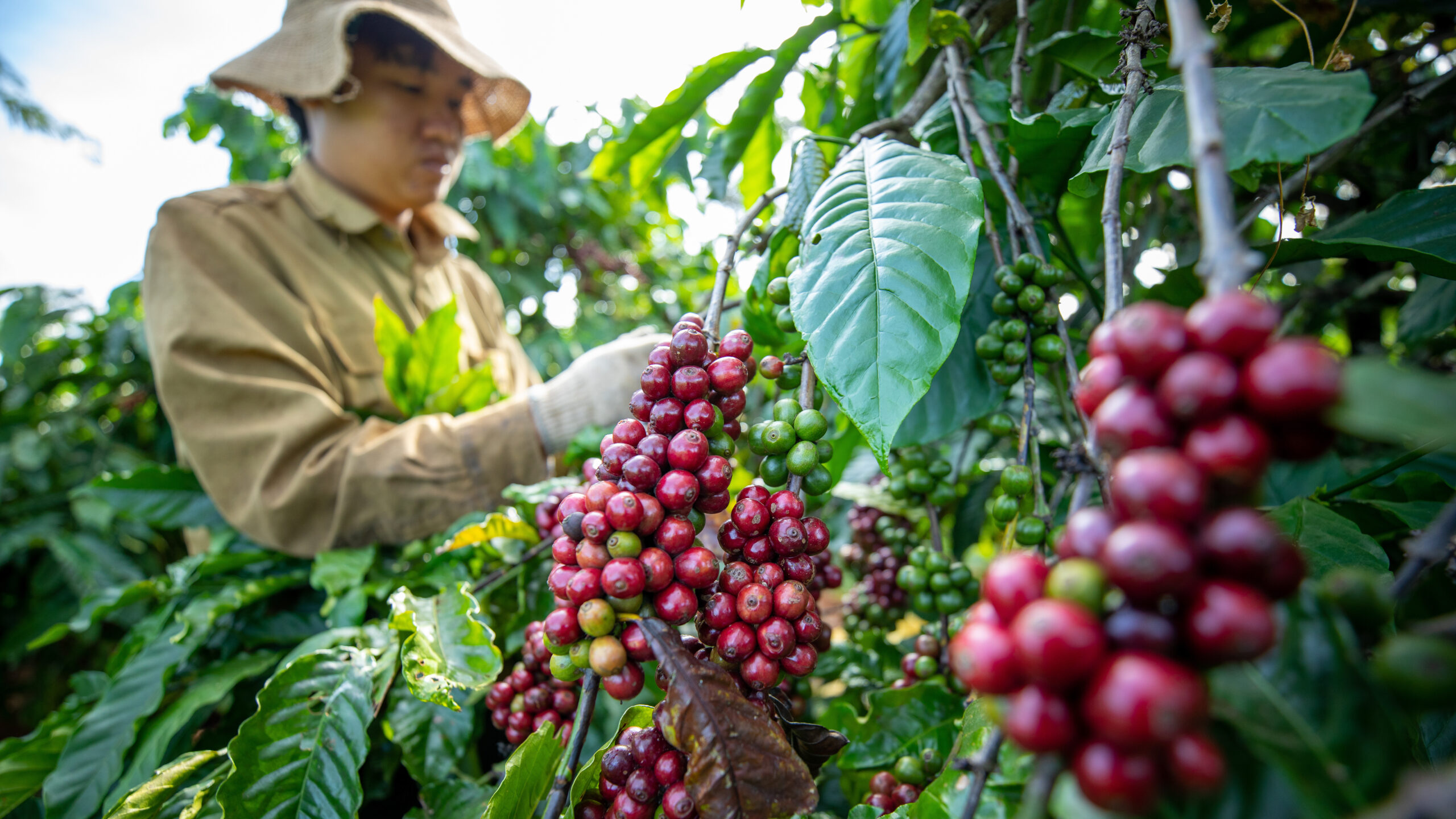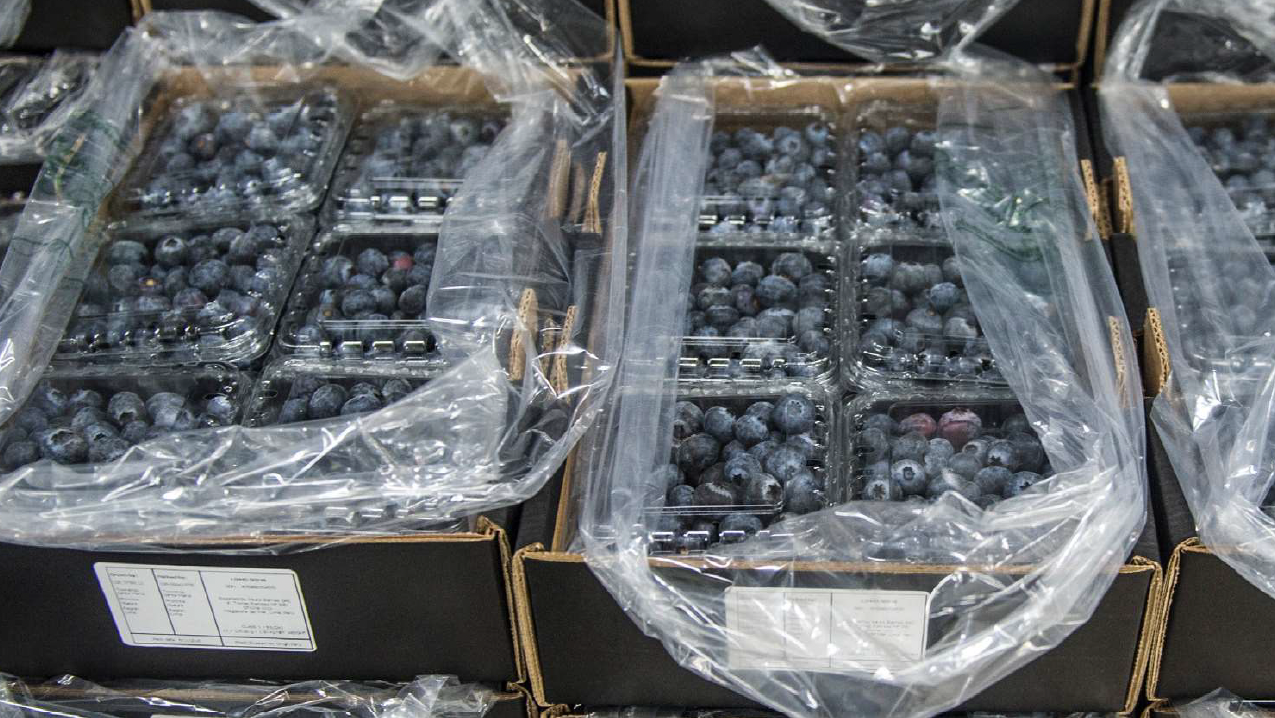Through its programs that educate farmers and apply scientific research in the field, agricultural extension plays an important role in improving rural livelihoods and increasing food security around the world. A new IFPRI book, Agricultural Extension: Global Status and Performance in Selected Countries, gives a global overview of these benefits and explores how extension services work in Brazil, the Democratic Republic of the Congo (DRC), Ethiopia, Malawi, and Uganda.
A Sept. 10 virtual event, co-organized with the IFPRI-led CGIAR Research Program on Policies, Institutions, and Markets (PIM), explored the findings of the book—edited by Senior Research Fellows Kristin Davis, Suresh Babu, and Catherine Ragasa—and the current challenges extension systems face. In opening remarks, PIM Director Frank Place emphasized the importance of extension research in shaping global agricultural transformation. “The topic of this book is as important now as it has ever been,” Place said.
The book adds to the growing conversation on extension by providing a comprehensive comparison of approaches across countries, Davis said. Agricultural extension and advisory services should follow a “best-fit” approach, she explained, because considering unique country conditions is essential to a successful extension system. The book fills three main gaps in extension knowledge, Davis said: The lack of a common extension framework across countries, minimal up-to-date global extension data, and no comparative performance data that links both primary and secondary sources across countries.
The book covers various intersectional topics within agricultural extension that often are overlooked, said Margaret Najjingo Mangheni, an agricultural extension professor at Makerere University in Uganda—including the financing of advisory and educational programs, the importance of having diverse service providers, and the inclusion of underserved voices in program implementation. The book also highlights the role of governance systems in helping diverse groups work together. “We need to make sure that there are structures and processes to ensure that actors are moving together in tandem,” Mangheni said.
While it has many players and distinct programs, “the holistic nature of extension and its complexity are often overlooked or neglected,” said Hur Ben Corrêa da Silva, a State Coordinator of Personnel and Career Development in Paraná, Brazil. The book addresses both the benefits and limitations of agricultural extension services, he said, especially with the authors’ “best-fit” framework. Agricultural extension must extend its conversations to underrepresented and overlooked groups that are just as affected by extension policies as any others, he said, and publishing the book in different languages—including Spanish and Portuguese—is a good first step to expand the research’s accessibility. Currently, the book is only published in English.
The book also makes recommendations for future extension policy making. Priorities include improving monitoring and evaluation systems, upgrading training for extension professionals, increasing participation of stakeholders and farmers, and more effective use of digital technologies, Babu said.
Uganda Minister for Animal Industry Bright Rwamirama is one policy maker who found the book useful and relevant to his country’s current development challenges. Uganda has recently shifted its extension focus from the public to the private sector and is seeking ways to include representatives of civil society in public policy discussions. “This publication could not have come at a better time than this, when agricultural extension globally and especially in developing countries are in transition,” he said.
Speakers agreed that agricultural extension is not reaching its fullest global potential, and that governments must invest more in extension services as a means to improve their citizens’ livelihoods. Going forward, extension research and investments should be at the forefront of all countries’ agendas, Mangheni said.
Francesca Edralin is an IFPRI Communications Intern.







